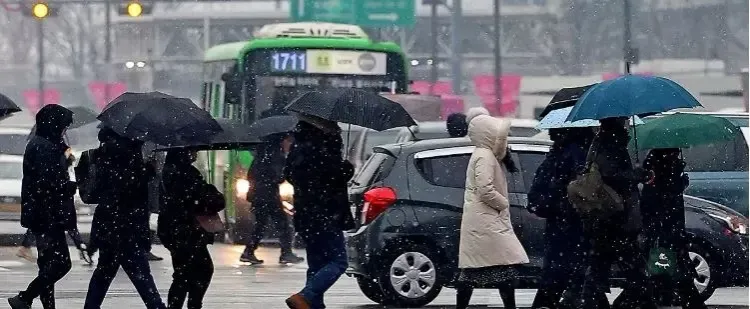Rise in Anxiety and Depression Among South Koreans in 2024: Survey Findings

Synopsis
Key Takeaways
- Anxiety levels rose from 3.4 to 4.1 points.
- Depression levels increased from 2.8 to 3.5 points.
- Happiness perception varied by income.
- Lowest income group happiness decreased to 6.0 points.
- Political and economic satisfaction improved slightly.
Seoul, March 6 (NationPress) A recent survey indicates that the number of South Koreans experiencing anxiety and depression rose in the past year, with varying perceptions of happiness based on income levels. The survey revealed that respondents reporting anxiety scored an average of 4.1 out of 10 last year, up from 3.4 in 2023. Similarly, feelings of depression increased from 2.8 points to 3.5 points during the same period, as per the data provided by the Korea Institute of Public Administration, according to Yonhap news agency.
The survey engaged 8,251 adults from August to September of last year, aiming to assess social integration and public sentiment. The average public perception of happiness was measured at 6.8 points, reflecting a 0.1-point rise from the previous year.
Notably, the lowest income bracket, earning less than 1 million won ($693) monthly, reported a decrease in happiness by 0.1 points to 6.0 points. In contrast, the wealthiest income group, earning over 6 million won monthly, saw an increase in happiness from 6.8 points to 7.0 points last year.
Satisfaction ratings regarding the political and economic landscape in the country improved by 0.7 points each, with scores of 5.1 and 5.3 points respectively.
Moreover, individuals identifying as moderate constituted 45.2 percent, the largest political inclination, even though this figure represented a 1.5 percentage-point decline from the previous year. Meanwhile, 30.2 percent identified as conservatives, and 24.6 percent regarded themselves as liberals.
Globally, anxiety and depression are the most prevalent mental health issues, affecting approximately 284 million individuals suffering from anxiety disorders and 264 million with depressive disorders, according to data from The Lancet and the World Health Organization (WHO).









